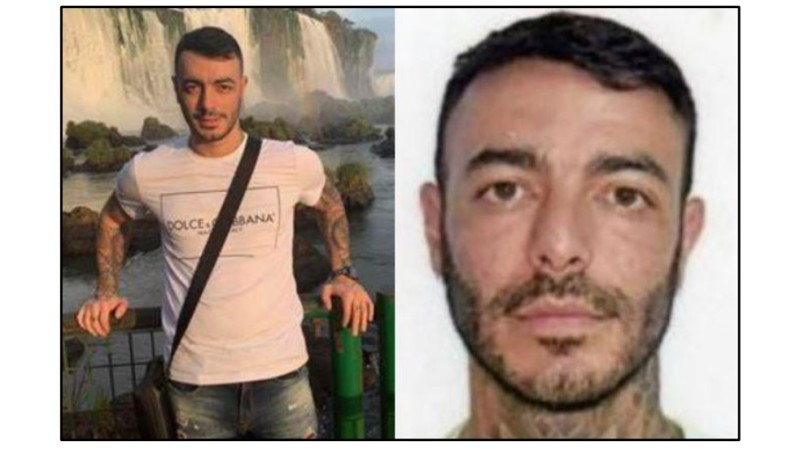South American drug traffickers created offshore companies and a complex fake billing system to bypass anti-money laundering controls at banks in the U.S. and elsewhere, according to newly unsealed court documents.
The case highlights how traffickers are able to capitalize on the difficulties banks have in detecting illicit funds when they flow through multi-layered networks of companies and accounts, experts said.
The inner workings of the operation, allegedly led by fugitive Uruguayan Sebastián Enrique Marset Cabrera, were revealed in documents unsealed on May 21. The U.S. State Department is offering a reward of $2 million for information leading to the arrest of Marset, 29.
The unsealed documents include an indictment against both Marset and a 44-year-old Paraguayan named Federico Ezequiel Santoro Vassallo, also known as “Capitan.” Santoro acted as “a transnational money launderer for drug-trafficking organizations,” according to the U.S. Attorney’s Office of the Eastern District of Virginia.
The Attorney’s Office also unsealed a statement of facts, agreed upon by both the prosecution and defense, in the case of Santoro who has pleaded guilty and awaits sentencing.
The statement says an unidentified conspirator of Marset’s “created false invoices to make the movement of money appear connected to legitimate business, when in fact no such goods or services were actually being acquired.”
Investigators scrutinized bank records showing that, over the course of five months, almost $9 million “moved from Europe, through the U.S. correspondent banking system, and on to businesses located primarily in Chile and China.”
In relying on U.S. correspondent banks — which serve as intermediaries to facilitate international transactions — the alleged traffickers appear to have exploited a weak point in the global financial system.
When they act on behalf of other financial institutions, correspondent banks don’t do the same scrutiny as they would with their own customers. The onus instead falls on the original bank that is seeking to move funds.
“Many financial institutions do not spend the resources on fintech, financial software, and platforms that would allow them to determine who is behind a particular company or entity,” said Louise Shelley, founder of the Terrorism, Transnational Crime and Corruption Center at George Mason University in Virginia.
The case against Marset and Santaro was built partly on hacked messages from Sky ECC, specially modified phones that were made by a Canadian company for ultra-secure communications. The company said it bore no responsibility for criminals who slipped through its vetting process, OCCRP reported in last year’s Crime Messenger investigation.
“MARSET sent pictures of cocaine bricks to the defendant over the Sky ECC network,” according to the statement of facts in Santoro’s case.
Santoro was extradited to the U.S. after being arrested in 2023 as part of “Operation A Ultranza Py,” which the U.S. State Department called Paraguay’s “largest and most consequential organized crime investigation.”
Paraguay is an infamous cocaine trafficking and money laundering hub. But efforts to fight organized crime have improved with Operation A Ultranza Py, according to Alba González Rolón, a lawyer and expert with the non-profit network Global Initiative Against Transnational Organized Crime.
Paraguay has created specialized courts for organized crime and financial offenses, but “political interference in the institutions responsible for enforcing these laws severely hampers their proper functioning,” she said.
González, a former judge at a specialized organized crime court in the Paraguayan capital of Asunción, also noted the challenges faced by financial institutions that often inadvertently allow illicit funds to slip through their systems.
In particular, González pointed to a “lack of tools to enable the tracing of financial flows, which could generate valid documentation that can be considered admissible evidence.”
But she added that governments share the responsibility to pass laws requiring banks to implement stronger anti-money laundering processes.
“They should establish legal obligations to introduce regulations requiring all legally authorized financial institutions to use approved and monitored technological tools that generate real-time information for regulatory and oversight bodies,” said González. “That is, a system of cross-checking.”



